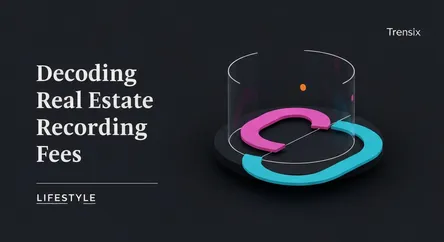Lifestyle
Decoding Real Estate Recording Fees

Understand recording fees, the essential government charges that make your property transaction an official public record. A key closing cost.
What is it?
Recording fees are charges collected by a government agency, typically the county recorder's office, to enter a real estate document into the public record. When you buy a property, documents like the deed (transferring ownership) and the mortgage (securing the loan) must be officially recorded. This process provides a public, traceable chain of title, legally establishing ownership and protecting against future claims. These fees cover the administrative costs of maintaining these important public records.
Why is it trending?
As the real estate market fluctuates, so does the focus on every line item of closing costs. Buyers and sellers are becoming more financially savvy, scrutinizing expenses they previously overlooked. Furthermore, local governments periodically adjust these fees to reflect administrative costs or budget needs, making it a variable expense that can change from year to year. The increased transparency in real estate transactions has brought more attention to these seemingly minor but mandatory charges.
How does it affect people?
Recording fees are a mandatory part of the closing costs for nearly every real estate transaction. They directly impact the total amount of cash a buyer needs to bring to closing, or the net proceeds a seller receives. The cost can vary significantly depending on the state, county, and the number of pages in the documents being recorded. While not typically a deal-breaker, failing to budget for these fees can create a last-minute financial scramble, adding stress to the home buying or selling process.